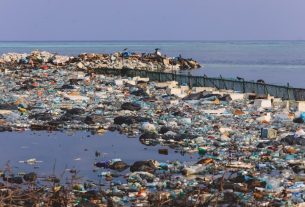TEHRAN, Oct. 21, 2025 — Human Rights Watch (HRW) has condemned the Iranian government following the deaths of three women in Qarchak prison, citing a pattern of medical negligence and rights violations. The organization claims that the women—Soudabeh Asadi, Jamile Azizi, and Somayeh Rashidi—died between September 16 and 25 after being denied timely and adequate healthcare.
Details of the Deaths
- Soudabeh Asadi, detained on financial charges, died on September 16 after prison staff allegedly failed to transfer her to a hospital despite clear medical distress.
- Jamile Azizi died on September 19, reportedly after her symptoms of a heart attack were dismissed by prison staff.
- Somayeh Rashidi, a 42-year-old political prisoner with known health conditions, suffered a seizure on September 15 and died ten days later. HRW reports that officials accused her of faking illness and administered sedatives that worsened her condition.
Iranian authorities confirmed Rashidi’s death but attributed it to drug use and neurological disorders, claiming she received appropriate care. HRW and other rights groups dispute this account, pointing to a broader policy of withholding medical treatment, especially from political detainees.
Systemic Failures and International Standards
HRW described the deaths as part of a long-standing pattern of deliberate neglect, stating:
“Prisons in Iran, especially Qarchak, have become places of torment and death where prisoners’ dignity and basic rights are systematically ignored.” Human Rights Watch
An earlier Amnesty International report from April 2022 documented dozens of similar cases across 30 Iranian prisons, highlighting the denial of medical care as a punitive tool.
Qarchak prison, originally a converted poultry farm, is notorious for overcrowding, unsanitary conditions, and lack of access to clean water and food. It houses thousands of women, including political prisoners and prisoners of conscience, in conditions that violate the UN’s Mandela Rules, which mandate equal access to health services for all detainees.
Calls for Accountability
HRW has urged the international community to take action, warning that many more prisoners remain at risk. The organization emphasized that Iran’s obligations under international law require it to uphold the right to life and ensure humane treatment of all detainees.
Summary: The deaths of three women in Iran’s Qarchak prison have reignited scrutiny of the country’s prison system, with Human Rights Watch accusing authorities of medical neglect and rights violations. The cases highlight systemic failures and call for urgent international accountability.
Sources: Human Rights Watch Human Rights Watch; JURIST
Excerpts from HRW and jurist.org article by Durdana Chowdhury | U. Dhaka Department of Law, BD



